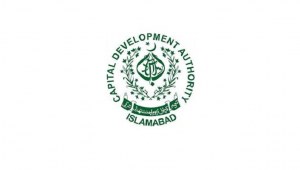Property prices are still rising in the UK according to the latest indices to be published and are predicted to keep doing so.
They will rise by at least 5% during 2010 according to the centre for economics and business research (cebr) as a combination of low mortgage rates and a shortage of new homes being built would push up house prices.
Analysts said they expect lower price growth of 3.4% during 2011 followed by a strong rise of 9% in 2012. But they also warned that cuts in public sector jobs and very low wage inflation could limit the scope for house price inflation.
The group is also predicting that average mortgage rates will fall from around 4% now to 3% by the beginning of 2011. It said the drop would be driven by the money markets pricing in the impact of cuts to the government’s budget deficit.
The research also expects the Bank of England base rate to remain at 0.5% for longer than is currently predicted. At the moment the economic consensus is for the base rate to rise to 2.25% by the end of 2011, but cebr thinks it will then still be at 0.5%.
However, the group said its analysis did suggest that the base rate could be temporarily higher if there was a hung parliament and in the worst case it could rise to 3.5%. But it added that the impact of this was likely to be temporary and within 18 months rates would be back where they would have been if a single party had won the election.
The report comes within days of a price index shows that real estate price growth has broken the double digit barrier for the first time in almost three years, suggesting that confidence in the market has returned.
Nationwide said that the 10.5% rise in average annual prices was the biggest since June 2007. Property values grew by 1% in April to an average of £167,802, bringing them to within 10% of their peak in October 2007.
Nationwide attributed the strong rebound in the past year to low levels of stock on the market and relatively high demand, rather than to high levels of sales. It warned, though, that the upward trend was likely to stabilise over the coming months as more sellers put homes on the market.
‘Given the very strong performance of house prices from May 2009 onwards it will take monthly increases in excess of 1% for the annual rate of inflation to be maintained in double digits,’ explained Martin Gahbauer, chief economist at Nationwide.
The level of the monthly rise, based on seasonally adjusted figures, was partly due to April 2009 being one of the weakest months of last year, Nationwide said. The quarterly rate of growth, regarded as a smoother indicator of house price trends, fell further from 1.5% in March to 1.1% last month.
Separate research published at the end of last week from Rightmove showed that asking prices increased 2.6% in April and are now 6% higher than in the same month in 2009.
It also found that the percentage of buyers planning to enter the market for the first time stayed at 26% in the second quarter, below the long term average of 40% despite the scrapping of stamp duty on properties worth up to £250,000.
Rightmove said that the figures showed the measure had ‘failed to get traction’, as most first time buyers believed that house price rises over the coming months would harm their chances of getting on the ladder.







